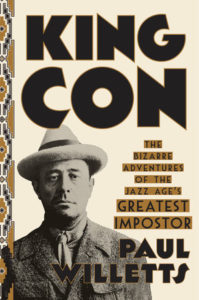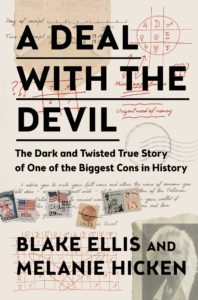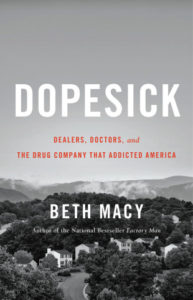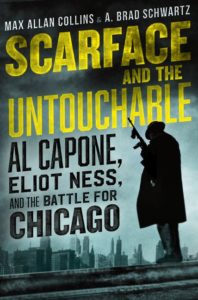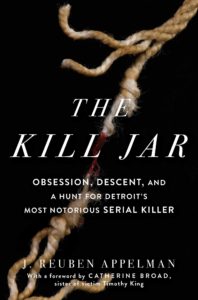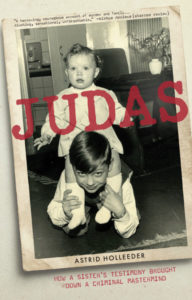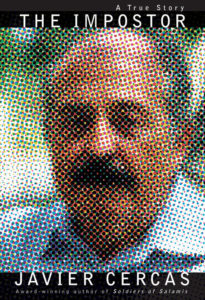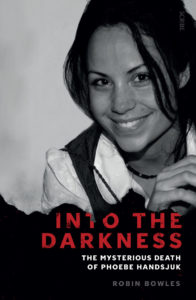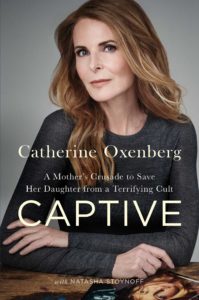These are boom days for writers and readers looking for thoughtful, hard-hitting stories about real-life crime. Whether you’re in the mood for a high-octane page-turner, an investigation, or a penetrating memoir, chances are there’s a book (and many a podcast or docu-series) out there for you.
Every month, we round up the best new crime non-fiction with recommendations from CrimeReads staff. Here are the selections for August:
Paul Willetts, King Con: The Bizarre Adventures of the Jazz Age’s Greatest Impostor (Crown)
Edgar Laplante, though largely forgotten, is one of the more puzzling and bizarre figures of the 20th century. Once a vaudeville performer, Laplante turned to an elaborate grift when the circuit dried up, posing as “Chief White Elk,” supposedly a Cherokee chief, sports star, hero of WWI, and whatever other accolade suited Laplante’s peculiar story in whatever town he happened to be working that month. Supposedly raising money for the Cherokee people, Laplante criss-crossed the country in search of well-to-do marks, until finally his notoriety became too much and he headed over to Europe. Once there, he was taken up by an heiress with ties to the Italian fascist movement, and he soon became a favorite in Mussolini’s Italy. That’s just a rough sketch of his incredible and troubling story. In King Con, Paul Willetts tells the intricate story of Laplante’s misadventures and complicated swindles, drawing an expert portrait of both the time period and the man. It’s a useful reminder that America has always belonged to the con artist.
Blake Ellis and Melanie Hicken, A Deal with the Devil: The Dark and Twisted True Story of One of the Biggest Cons in History (Atria)
Ellis and Hicken, investigative reporters for CNN Money, began with what they thought was a simple story: whispers about a mail-in scheme involving a purported psychic targeting the elderly around America. But when they started reporting out the story, they found it was much, much larger: a worldwide scheme bringing in an estimated $200 million, fronted by a mysterious French psychic and possibly backed by a shadowy Swiss corporation, bilking thousands of mostly elderly people around the world of their money with vaguely personalized letters from a psychic and a clever combination of scaremongering and hopeful claims of riches and good health. Ellis and Hicken’s reporting was well documented on CNN Money, but in the book, we get an even more dramatic telling of their quest to follow the money. A Deal with the Devil is one of the more gripping investigations you’ll read this season.
Beth Macy, Dopesick (Little, Brown and Company)
Dopesick is a deep dive into the opioid crisis in Virginia, West Virginia, and its immediate environs. As a longtime reporter for the Roanoke, Virginia newspaper, Macy really knows this territory (which was also the setting of her widely acclaimed Factory Man). In Dopesick, Macy looks at the entire universe of the crisis, from the shady marketing practices of OxyContin maker Purdue Pharma, to the doctors and community members trying to do their best to beat back or just control the epidemic, to the street dealers and their customers, which range from wealthy suburban high school kids to homeless prostitutes. The result is a devastating and very timely book, easy to read and hard to forget.
Max Allan Collins & A. Brad Schwartz, Scarface and the Untouchable: Al Capone, Eliot Ness, and the Battle for Chicago (William Morrow)
Max Allan Collins already has plenty of street cred when it comes to gangster stories. The prolific crime fiction icon is the author of Road to Perdition and the Quarry series and was for fifteen years the pen behind the Dick Tracy comic. Al Capone and his foil, Eliot Ness, have long been subjects of fascination for Collins and in his new book, written with co-author A. Brad Schwartz, he sets out to provide a definitive account of the Capone and Ness’s linked destinies. Scarface and the Untouchables is as lively and masterfully written as you would expect, with the scholarship to back it up. Collins and Schwartz have spent a long time studying and thinking about these men, and it shows in the portraits they draw—at once intimate and comfortable exploring the wider historical context of crime in Prohibition America.
J. Reuben Appelman, The Kill Jar: Obsession, Descent, and a Hunt for Detroit’s Most Notorious Serial Killer (Gallery)
J. Reuben Appelman was six-years old and already familiar with violence inside the family and out when the Oakland County Child Killings began in and around Detroit. A serial abductor and killer was snatching up children, keeping them in captivity, and eventually killing them in 1976 and 1977, putting the city on high alert and leaving a lasting, terrifying memory for those who grew up during the period. Appelman never could shake the memory, and as an adult, years after the killings had stopped and the official investigation into them closed as unsolved, he began his own search for answers. The Kill Jar is a powerful true crime memoir. Appelman is unrelenting both in his search for the truth about the Oakland County murders, and in his exploration of his own experiences with violence, abuse, and near abduction.
Astrid Holleeder, Judas: How A Sister’s Testimony Brought Down A Criminal Mastermind (Mulholland)
This stranger-than-fiction memoir from Astrid Holleeder, currently in hiding after testifying against her criminal mastermind of a brother, details her Dickensian childhood and complex relationship with her brother. After a youth spent barely surviving the violence of their father, Astrid and her sister watched in horror as their brother became an increasingly violent gangster, guilty of the 1970s kidnapping of the heir to the Heineken fortune, and turning the ransom money into the seed capital for a criminal empire. Given its emphasis on the harsh realities of life as a gangster’s close relative, this is probably one of the least glamorous takes on the criminal underworld ever written.
Javier Cercas, The Impostor: A True Story (Knopf Doubleday)
Javier Cercas, wildly creative author of many works of fiction and non-fiction, investigates the life and lies of Enric Marco, who spent decades claiming to have been one of the few thousands of Spanish Republicans imprisoned in Nazi concentration camps before being revealed as an imposter by several historians working on the history of Spain in WWII. Cercas worries about giving so much attention to a man who clearly craved it, but ultimately this meditation on truth and lies, fiction and non-fiction, Spanish history, and Spanish revisionism, is about far more than one man’s falsehoods.
Robin Bowles, Into The Darkness: The Mysterious Death of Phoebe Handsjuk (Scribe)
From the Australian queen of true crime, Robin Bowles, comes a new book investigating the botched investigation of a bizarre death. In 2010, Phoebe Handsjuk was discovered dead at the bottom of a trash compactor in her boyfriend’s high-rise apartment building, a death that was later ruled as a suicide, despite the incredible difficulty of packing oneself into a garbage chute, plus plenty of other suspicious details.
Catherine Oxenberg with Natasha Stoynoff, Captive: A Mother’s Crusade To Save Her Daughter From A Terrifying Cult (Gallery)
We’d want to read a memoir from actress, model and princess Catharine Oxenberg even if she wasn’t a former member of a Hollywood cult involving Allison Mack and sex slaves who had to rescue her daughter from the very same cult. What other book has a conversation between Yugoslavian royalty and an international model about how to deprogram someone involved with a cult? We dare you to find another.


